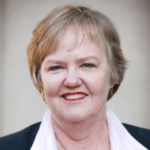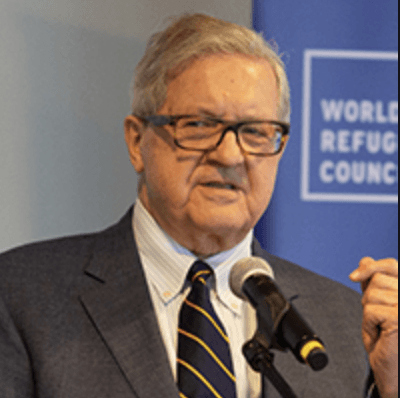By Lloyd Axworthy, Mayu Brizuela de Avila and Elizabeth Ferris
When the North American leaders of Canada, Mexico and the United States meet on January 10, the thorny issue of migration will undoubtedly be a hot topic of discussion. Let’s hope they go beyond discussing ways to strengthen border security. That’s been the focus for many years, and it simply hasn’t worked. Migration has not only surged in the past year but has also become a lot more complicated, with people of many nationalities now travelling in search of protection. While a lot of attention has focused on record numbers of people arriving at the US-Mexico border (most of whom are turned away), much less attention is given to countries like Panama (population 4.4 million) which recorded almost 250,000 people crossing its border last year. If a similar percentage of people arrived on the US border, the number of migrants would be 22 million — not 2 million.
Our systems for managing migration, mainly from Central America, are not working anymore. The longer we put off comprehensive migration policy, the worse things are likely to become.
For the past year, a high-level North and Central American Task Force on Migration, organized by the World Refugee & Migration Council, has grappled with the issue of migration from northern Central America. We conducted research, consulted widely with policy-makers, experts and civil society groups throughout the region and presented our recommendations to governments and civil society in Central America, Mexico and Canada.
While our reports go into much more detail about what needs to be done, here are some key takeaways. Hopefully, they will trigger some more creative thinking on the part of our leaders as they gather in Washington next week.
First, not only do we need a new comprehensive, strategic, regional approach to migration, but we need a new forum to address these issues. Central and North American governments need a space to consider migration in all its complexity, including asylum, humanitarian protection, skilled labour migration, irregular migration, trafficking and economic and security concerns. Moreover, governments simply cannot do this alone. A new regional forum is needed to focus on migration — a platform not just for governments but also includes migrants and faith-based organizations, academics and business representatives. We call for a new Migration Council, modelled on the successful Arctic Council, which brings together all stakeholders and where migrant groups and civil society organizations do not organize separate meetings on the sidelines but have a seat at the decision-making table.
Second, while everyone talks about addressing the drivers of Central American migration, there are no quick fixes. Our Central American colleagues, in particular, stressed the importance of tackling governance issues — lack of accountability and the rule of law, corruption, and gang violence. Putting more money and investment in Central America will not reduce migration from the region unless these complex governance issues are addressed. This will take time, but some measures can and should be implemented now.
Third, humanitarian protection in Central America is in a state of emergency. Domestic violence is rampant, violence at the hands of criminal gangs and the state is widespread, and the journey through the region is treacherous. Many people are displaced within their own countries; when they cannot find safety there, they often undertake journeys to the north. We suggest a layered, point-to-point approach to providing protection in the region — working to increase the security of people in their communities when they are displaced within their countries, when transiting through other countries and when they seek protection in neighbouring countries.
Finally, many have noted that we need new pathways for safe, regular and orderly migration. The reason there is so much undocumented migration is stunningly simple: there aren’t enough legal ways for Central Americans to migrate. Canada and the US need migrant workers. Our report lays out some specific ways that Canada and the US can increase programs for Central American labour and address the life-and-death protection needs of people in search of safety. Efforts to protect Central Americans and manage borders will not succeed without alternative migration pathways. Developing safe, legal migration channels would eliminate some of the negative consequences of irregular migration: extortion of migrants by unscrupulous smugglers, the suffering of separated families and human rights violations across the board.
We hope North American leaders will discuss migration at their summit next week but that the conversation goes beyond strengthening border security. More sustained and profound attention to the social, economic and governance dimensions of migration is needed. We urge them to consider developing a new regional forum where these issues can get the attention they deserve and where all stakeholders are represented.
Lloyd Axworthy is chair of the World Refugee & Migration Council and former Canadian Minister of Foreign Affairs; Mayu Brizuela de Avila is co-chair of the North and Central American Task Force on Migration and former minister of foreign affairs for El Salvador; Elizabeth Ferris is Director of the Institute for the Study of International Migration at Georgetown University.
Photo: Government of Mexico



